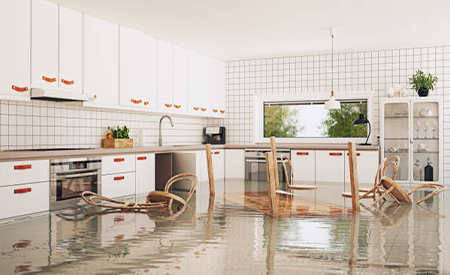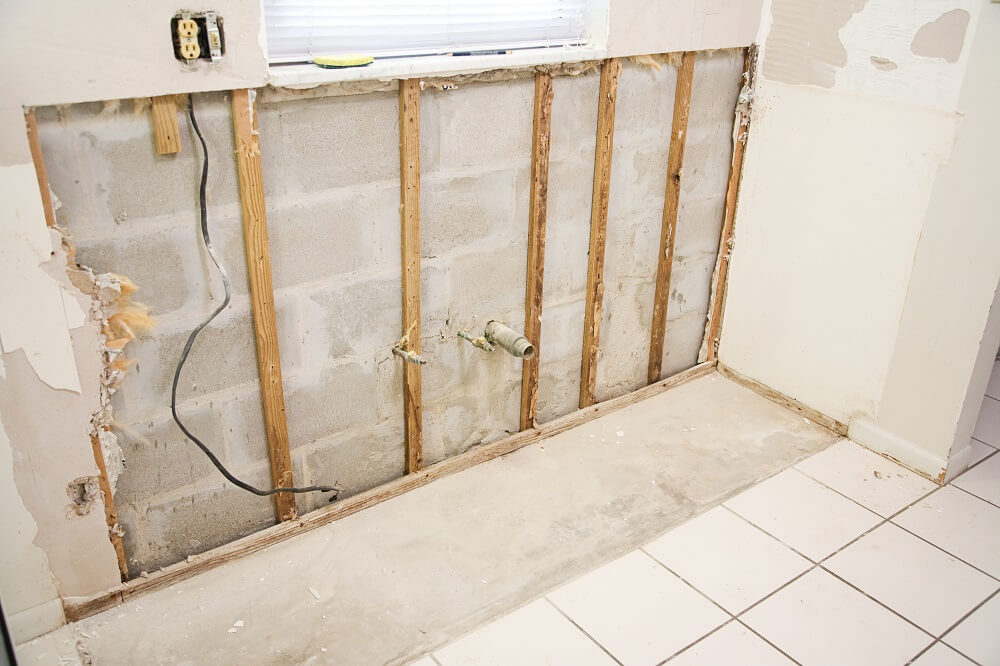Trusted Water Damage Repair Services for Residential and Commercial Properties
The Refine of Water Damage Cleanup: Guaranteeing Your Home Is Restored Properly
Water damages can be a complicated challenge for home owners, requiring a precise and organized cleaning process to restore security and functionality. An extensive analysis is vital to recognize the degree of the damages and determine the proper remediation procedures. Following this, reliable water extraction strategies play an essential role in minimizing more injury. However, the subtleties of drying, sanitizing, and ultimate restoration are similarly vital and frequently ignored. Recognizing these stages can make a significant difference in the result of your home's repair, motivating a closer check out what each step entails.
Evaluating the Damage
Upon discovering water damages, the initial step is to completely examine the degree of the impact. This initial evaluation is crucial, as it aids establish the essential steps for effective cleanup and reconstruction. Begin by evaluating the impacted locations, consisting of wall surfaces, ceilings, floors, and individual belongings, to determine the source of the water breach, whether from flooding, leaks, or condensation.
Recording the damages is important for both insurance coverage claims and intending repair efforts - damage restoration services. Use pictures and composed notes to catch the intensity of the damages, noting any kind of afflicted architectural aspects and materials. Pay unique attention to locations that may not be instantly noticeable, such as behind walls and under carpetings, as hidden dampness can cause further issues, including mold and mildew growth
In addition, examine the timeline of the water exposure. The longer the materials remain damp, the greater the capacity for damages. Recognizing the duration of direct exposure will educate the seriousness of remediation initiatives. Eventually, an extensive assessment lays the groundwork for a successful water damage cleaning process, making certain that all influenced areas are dealt with effectively and extensively.
Water Removal Strategies

Experts normally use completely submersible pumps for bigger quantities of water, which can promptly relieve flooding in cellars or other affected locations. For smaller sized amounts, wet/dry vacuum cleaners are commonly made use of to draw out residual moisture from carpets and hard surface areas. In addition, making use of mobile extractors permits targeted removal in confined spaces or locations with fragile products.
In instances of contaminated water, such as sewer or floodwater, progressed removal methods may involve making use of biohazard devices to make sure security and compliance with health regulations. High-powered removal devices are important in reducing water retention in structural materials, which can bring about mold growth and architectural damage otherwise dealt with promptly.
Inevitably, the efficiency of water extraction strategies plays a critical role in the total success of the water damage clean-up process, laying the foundation for subsequent restoration initiatives.
Drying and Dehumidification
Once standing water has actually been efficiently extracted, the next crucial stage in the water damage cleaning process is drying out and dehumidification. This step is necessary to stop further damages and mold and mildew growth, which can take place within 24 to 48 hours in wet environments.
To accomplish effective drying, customized devices such as industrial-grade air moving companies and dehumidifiers is employed. Air movers flow air across damp surface areas, enhancing dissipation prices, while dehumidifiers decrease moisture degrees in the air, promoting a helpful environment for drying. The mix of these devices guarantees that dampness is drawn out from walls, furnishings, and floorings, permitting them to completely dry thoroughly.
It is crucial to monitor the drying process very closely. Specialists usually use wetness meters to examine the wetness material in different materials, making certain that all impacted areas get to acceptable dryness degrees. This precise strategy helps to stop concealed moisture pockets that can result in architectural damages or harmful mold and mildew development.

Cleansing and Sterilizing
After the drying and dehumidification phase is complete, the following essential action in water damages clean-up is cleaning and sanitizing the influenced locations. This process is important to avoid the growth of mold, microorganisms, and various other microorganisms that flourish in damp settings.
The cleansing phase generally involves getting rid of any kind of particles, dust, and impurities from surface areas using specialized cleaning agents. For hard surface areas, a combination of soap and water or industrial cleaning products is commonly used. Soft products, such as furniture and carpetings, might require more substantial cleaning techniques, consisting of vapor cleaning or deep extraction techniques, to make sure detailed sanitation.

Sanitizing adheres to cleaning, using EPA-approved disinfectants to remove unsafe microbes. This step is necessary, specifically in areas that might have entered into call with floodwaters or sewer, as these resources can pose major wellness dangers.
Additionally, it is important to address any kind of remaining odors, which may call for the use of smell neutralizers or innovative strategies like ozone therapy. Appropriate cleaning and sterilizing not only recover the safety and security and health of your get more home however additionally lay the foundation for successful remediation and repair work in subsequent stages of the water damages cleaning process.
Remediation and Repair Services

As soon as the assessment is total, reconstruction efforts can begin. This commonly involves fixing or replacing broken products, making sure that all work abides by neighborhood building ordinance and standards. For circumstances, if drywall has actually been endangered, it will certainly require to be gotten rid of and changed with brand-new material. In addition, floor covering might need comparable attention, relying on the degree of water direct exposure.
It is essential to engage knowledgeable reconstruction professionals during this procedure, as they have the competence to handle complex repairs efficiently. They can aid alleviate potential future issues, such as mold growth or architectural instability, hence guaranteeing a habitable and safe living setting. Eventually, efficient remediation and repair work recover the home's stability and enhance its total worth.
Conclusion
In verdict, the procedure of a knockout post water damage clean-up is critical for bring back a home to its pre-damage problem. Each stage, from assessing the damage to carrying out reliable water extraction techniques, complied with by complete drying out, sanitizing, and required repair services, plays an essential role in guaranteeing security and conformity with structure criteria. Reliable implementation of these actions not just mitigates immediate damage but also enhances the long-term integrity and value of the building.
Water damages can be a complicated difficulty for property owners, necessitating a precise and structured clean-up process to recover security and functionality. Ultimately, a thorough analysis lays the foundation for a successful water damages clean-up procedure, making sure that all impacted locations are attended to efficiently and thoroughly.
Reliable water extraction techniques are necessary in alleviating damages and avoiding additional difficulties complying with a water intrusion occasion.In conclusion, the procedure of water damage fire and flood restoration companies clean-up is crucial for restoring a home to its pre-damage problem. Each phase, from assessing the damages to applying effective water removal strategies, followed by thorough drying, disinfecting, and required fixings, plays a crucial duty in making certain safety and security and compliance with structure criteria.